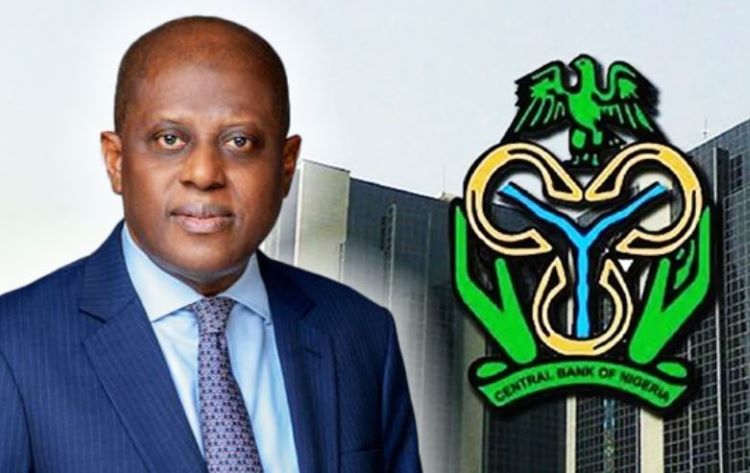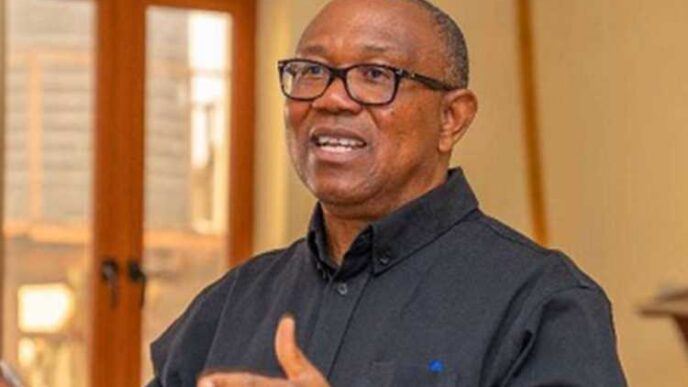Sacked staff of the Central Bank of Nigeria, CBN, who were disengaged last year, have dragged the apex bank to the National Industrial Court of Nigeria in Abuja, demanding N30bn as compensation.
The aggrieved former staff members, in an originating summons filed on July 4, 2024, under the NICN Civil Procedure Rules 2017, raised several issues for the court to determine.
Among other matters, the ex-CBN staff members are asking the court to decide whether they were denied their constitutional right to a fair hearing before and after their appointments were terminated. They claim that the CBN violated internal policies, Nigerian labour laws, and contractual rights.
The claimants—Stephen Gana, Kabiru Idris, Benedict Agbo, Peter Adeyemi, John Yisa, Eleanor Ihua, Stephen Ambore, Edom Obi, Dabo Chundung, Ekpe-Oko Roupa, Alabi Mubarak, Isa Yusuf, Quadru Ralph, Olasupo Adedokun, Dauda Yusuf, Ogidi Tolu, Levi David, Umar Kurba, Christopher Alfred, Gana Nma, Tanko Joel, Iyare Christian, Paul Iza, Alzebeokhai Esiemokhai, Pius Odunze, Isiuwe Uwadiahu, Vivienne Usoro, Imoh Francis, Ofili Lydia, Onunkwor Christopher, Adeshina Nurudeen, Bukar Ahmed, and Ajayi Omosolape—are all represented by Okwudili Abanum in a class action lawsuit.
They argue that the termination process, carried out through letters titled “Reorganisational and Human Capital Restructuring” dated April 5, 2024, violated both the CBN human resources policies and procedures manual and Section 36 of the Nigerian Constitution. The claimants further argue that the process lacked the necessary consultation and fair hearing mandated by law.
They also contend that the termination letters, issued on the grounds of restructuring, were arbitrary, illegal, and unconstitutional.
In light of this, the claimants seek an order declaring their dismissal null and void.
Additionally, the claimants are requesting a restraining order to prevent the CBN from terminating their employment without following the proper procedures. They are also seeking a declaration for their immediate reinstatement and payment of salaries and benefits from the date of termination.
The suit references Article 16.4.1 of the HRPPM, which mandates consultation with the joint consultative council and adherence to fair procedures before employment actions adversely affect staff. The claimants contend that this provision was flagrantly disregarded, as they were given just three days to vacate their positions and hand over official property.
They are also seeking N30 billion in general damages for psychological distress, hardship, and reputational harm caused by the dismissal, as well as an additional N500 million to cover the cost of the suit.
During the first mention of the suit on November 20, 2024, the court urged the parties involved to attempt an amicable resolution of the matter. Justice O. A. Osaghae noted, “This is a new matter; it is mentioned for the first time. I have looked at the processes, and it is my view that parties should attempt an amicable resolution of this dispute. Accordingly, parties are encouraged, pursuant to section 20 of the NICA 2006, to attempt an amicable settlement.”
Meanwhile, the CBN, represented by a team of lawyers led by Inam Wilson (SAN), informed the court that they had filed a preliminary objection to the claimant’s suit, which was served to the claimants on November 4, 2024.
Following the defendant’s counsel’s submission, Justice Osaghae adjourned the case to January 29, 2025, for the hearing of the preliminary objection.
It is recalled that in 2024, the CBN terminated the appointments of about a thousand staff in four batches between March and May of that year.
Some laid-off staff claimed they received severance payments as low as N5,000, while others said their gratuities were absorbed entirely to offset outstanding loans.
Although the layoff was officially attributed to reorganisation and human capital restructuring, the affected staff argue that the process violated the CBN Act, which mandates board approval for significant employment decisions.
On December 4 last year, the CBN stated that its early exit package was entirely voluntary and without negative repercussions for eligible staff.












